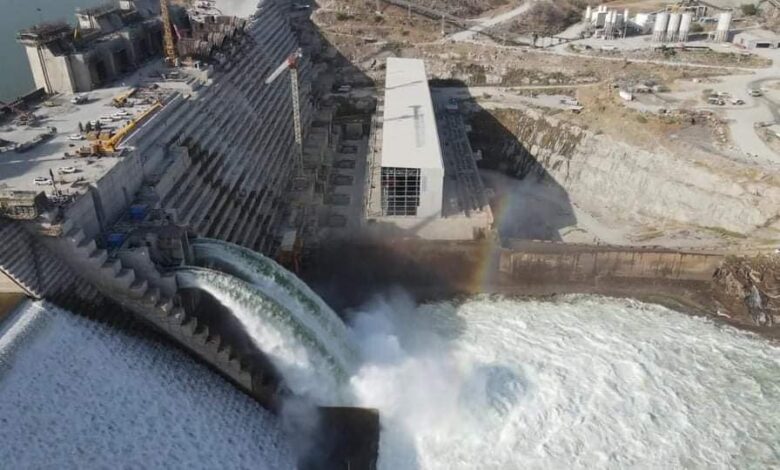
Egyptian-American space scientist and geologist Farouk al-Baz refuted claims that the Grand Ethiopian Renaissance Dam is at risk of collapsing.
During a Skype interview from Washington with privately-owned satellite channel TeN, Baz said that “The dam’s body is fine, and what is being said about the possibility of its collapse is nonsense.”
Baz noted that international companies and those contributing to the construction of the dam, which spent millions, would not do so unless they are sure that their money is in the right place and that the studies of the dam were sound.
“The world realized that the Egyptian state will not give up any part of its water share because of the GERD, and this is the most important thing, as Egypt does not mind that Ethiopia generates the electricity it needs from the dam as long as there is no impact on Egypt’s share of the water,” he added.
An Egyptian scientific study warned last year of the dangers of the collapse of the GERD on the downstream countries, Egypt and Sudan. The study detected a drop in the project site amid doubts about the dam’s safety.
The study, which was prepared by a research team including the Minister of Water Resources and Irrigation Mohamed Abdel Aaty, analyzed about 109 vertical scenes from December 2016 to July 2021, using radar technology.
The gatherings indicated “different-directional offsets in different sections of the concrete (main) dam as well as the dam (saddle or auxiliary dam).”
Further analysis of the data at the site of the construction of the dam showed “an inconsistent decline in the outskirts of the main dam, especially the western side of the dam, where varying displacements ranging from 10 mm to 90 mm were recorded at the top of the dam.”
Ethiopia announced on Sunday the start of producing electricity for the first time from GERD, despite contentions from downstream nations Egypt and Sudan. Ethiopian Prime Minister Abiy Ahmed officially inaugurated the partial commencing of power generation of GERD.
Negotiations over the GERD have officially stopped since April 2021, after Egypt, Sudan and Ethiopia failed to reach an understanding before the start of the second filling of the dam, which Ethiopia implemented in July.
Cairo and Khartoum reject Ethiopia’s insistence on filling the dam before reaching a binding agreement on filling and operation.
Egypt, which relies considerably on freshwater from the Nile, has voiced fears that the GERD would negatively impact the country’s water supply.
Egypt has also insisted that measures be put into place to protect downstream countries in case of drought during the dam’s filling process.
Egypt and Sudan say they want a legally binding agreement, while Ethiopia says any pact should be advisory.
The two nations consider the dam a threat to their vital water supplies, while Ethiopia considers it essential for development and doubling its electricity production.
The downstream nations fear possible blows to water facilities, agricultural land, and overall availability of Nile water.
Negotiations over the dam between Egypt, Ethiopia, and Sudan have stalled for years, with the three parties ultimately failing to reach any concrete agreement.
The disputed dam is the largest hydroelectric project in Africa, with a cost of more than four billion dollars. The construction of the dam began in 2011.
It is considered to be one of Egypt’s most serious water issues



